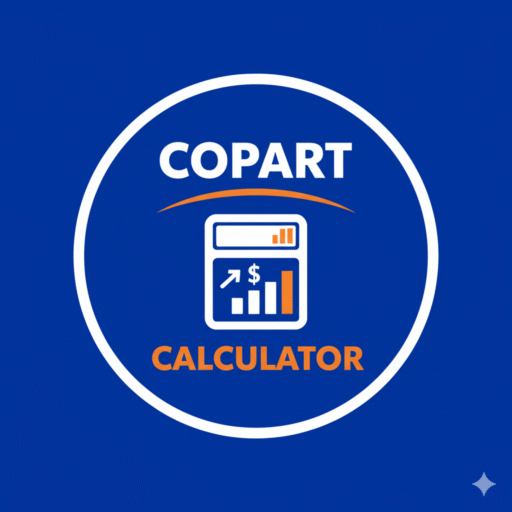If you’re considering buying a vehicle from Copart, one of the first questions you might have is: What’s the difference between licensed and non‑licensed buyer fees? Understanding this distinction can help you avoid surprise costs and make smarter decisions, whether you’re a first-time bidder or a regular auction participant.
What Is a Licensed Buyer at Copart?
A licensed buyer is someone who holds the required business or dealer license to purchase certain types of vehicles at Copart auctions. This license can be a dealer’s license, dismantler’s license, or another form accepted by Copart and state law. Licensed buyers get broader access and can bid directly on most vehicles—including salvage, clean title, and dealer-only inventory.
Key phrases:
- Copart licensed buyer
- Requirements for licensed buyers
- Dealer license Copart
“Download the latest Copart fee schedule in PDF format — all the key fees you need for 2025 in one easy document.”
What Is a Non‑Licensed Buyer?
A non‑licensed buyer does not possess a dealer or business license. You can still buy at Copart, but your options are more limited. Non‑licensed buyers have to use a registered Copart broker or a third-party broker to purchase restricted vehicles. Some states allow non‑licensed buyers to purchase certain vehicles directly, but rules vary by location and vehicle title type.
Key phrases:
- Copart non‑licensed buyer
- Buying from Copart without a dealer license
- Copart broker requirements
If you’re bidding through a third party, read about when you might need a Copart broker to participate.
Fee Differences: Licensed vs Non‑Licensed Buyers
1. Copart Buyer’s Premium
Both licensed and non-licensed buyers pay Copart’s standard buyer’s premium (sometimes called buyer fee), which is a percentage of the winning bid. This fee increases with higher bids and may be subject to caps.
2. Broker Fees (Non-Licensed Only)
If you’re a non‑licensed buyer, you’ll need to factor in broker fees. Brokers charge a flat fee or a percentage of the winning bid to help you complete your purchase. Broker fees can range from $200 to $500 per vehicle, or sometimes more for high-value lots.
3. Access to Inventory
Licensed buyers can bid on a wider selection of vehicles, including those marked as “dealer only” or “salvage title.” Non‑licensed buyers may be restricted from these categories unless they use a broker.
4. Additional Fees
Both buyer types will pay gate fees, environmental fees, possible payment processing charges, sales tax, and storage fees if pickup is delayed. However, brokers may add service fees for handling paperwork, export assistance, or expedited services.
Even without a license, you can still bid with the help of a Copart broker vs direct approach.
Example: Side-by-Side Fee Comparison
| Fee Type | Licensed Buyer | Non‑Licensed Buyer (with Broker) |
|---|---|---|
| Buyer’s Premium | $600 | $600 |
| Gate/Environmental | $120 | $120 |
| Broker Fee | $0 | $400 |
| Sales Tax (example) | $300 | $300 |
| Total Example | $1,020 | $1,420 |
Assumes a $5,000 winning bid and sample broker fee. For precise numbers, use our Copart Buyer Fees Calculator or check the Copart Fee Calculator.
Why Are There Different Fees for Licensed and Non‑Licensed Buyers?
The difference exists because of state regulations and Copart’s own policies. Licensed buyers are typically dealers, dismantlers, or businesses who meet strict legal requirements. Copart and state DMVs want to ensure only qualified businesses handle certain vehicles, especially salvage or non-repairable titles. Brokers serve as intermediaries to help individual buyers access these auctions, but charge a fee for their service and compliance.
Which Buyer Type Is Right for You?
Licensed Buyer:
- Ideal for high-volume or frequent buyers.
- No broker fees—can mean significant savings over time.
- Full access to all eligible vehicles.
- May qualify for certain tax exemptions.
Non‑Licensed Buyer:
- Best for one-time or occasional buyers.
- Simple process if only buying a few cars a year.
- Broker handles paperwork and compliance.
- Broker fees add to total cost.
If you’re not sure which route is best, try running your scenario through our Copart Broker Fee Calculator or explore fee structures with the Copart Auction Fees Calculator.
Frequently Asked Questions
Do I need a license to buy from Copart?
No, but you may have to use a broker for restricted vehicles if you don’t have the required license.
How much does a broker charge?
Broker fees typically range from $200 to $500 per vehicle, but can vary. Always check with your broker and use our calculators for real-time estimates.
Are there extra fees for non-licensed buyers?
Yes, primarily the broker fee. Some brokers may also charge for additional services.
Can I save money by getting licensed?
If you plan to buy multiple vehicles per year, the savings from avoiding broker fees can add up. For occasional buyers, the broker path may be easier.
Where do I find all Copart fees?
Use our Copart Fee Calculator for a full breakdown.

Martinez is the creator of CopartCalculator.com, a trusted resource for estimating fees and costs when buying vehicles from Copart auctions. With a focus on accuracy and ease of use, Martinez develops tools and content that help users make informed decisions and avoid hidden surprises. His mission is to simplify complex calculations and save buyers time and money throughout the auction process.
